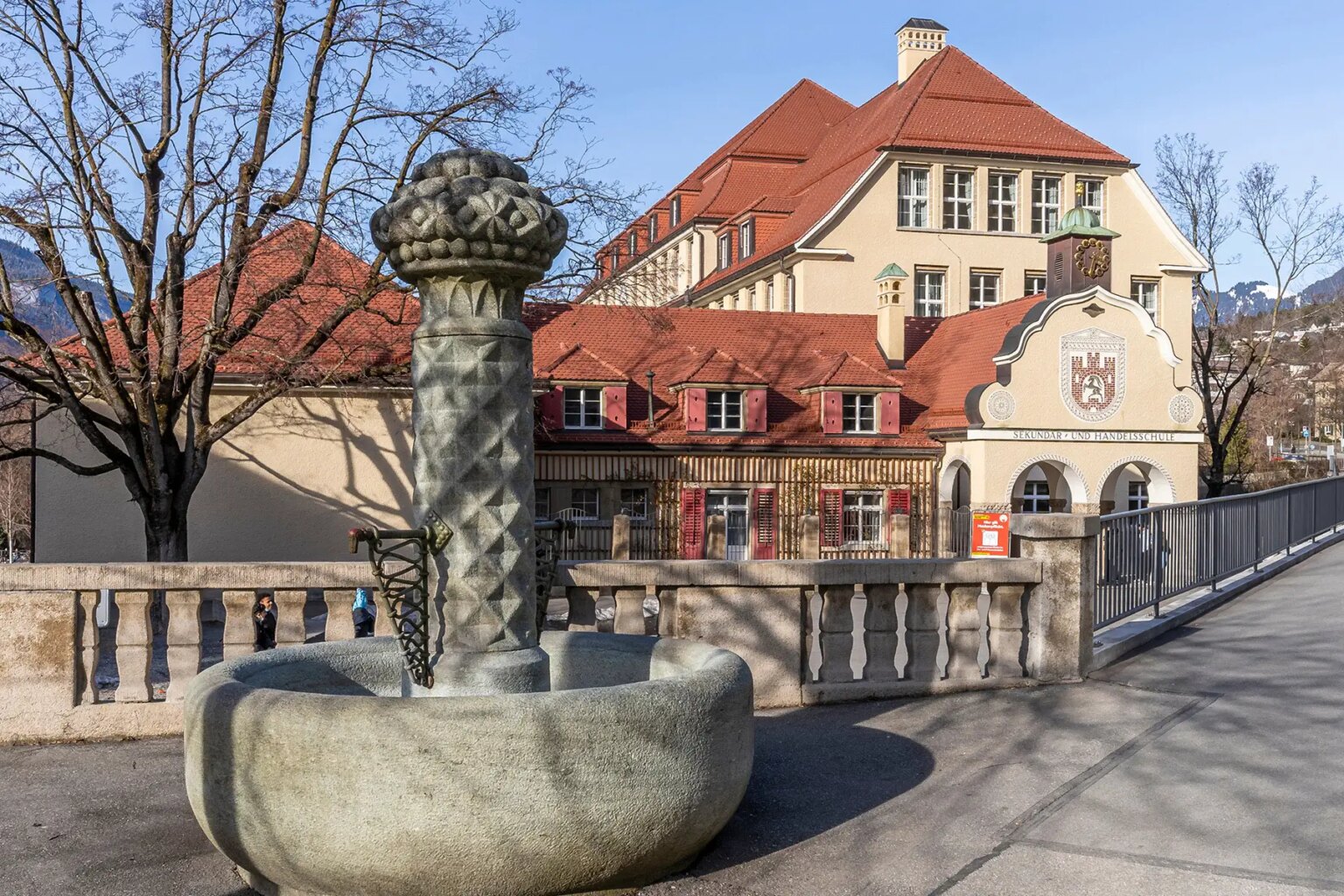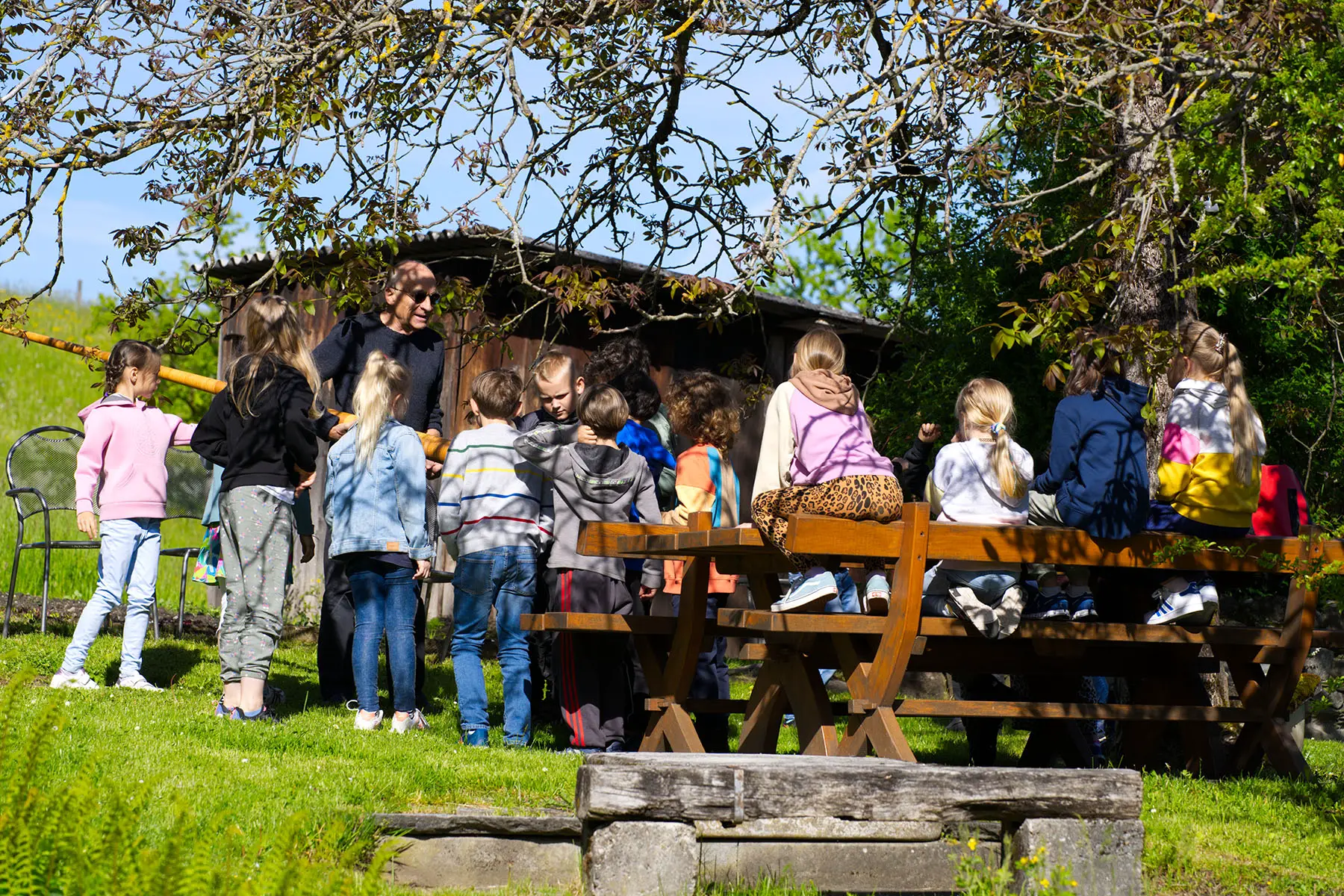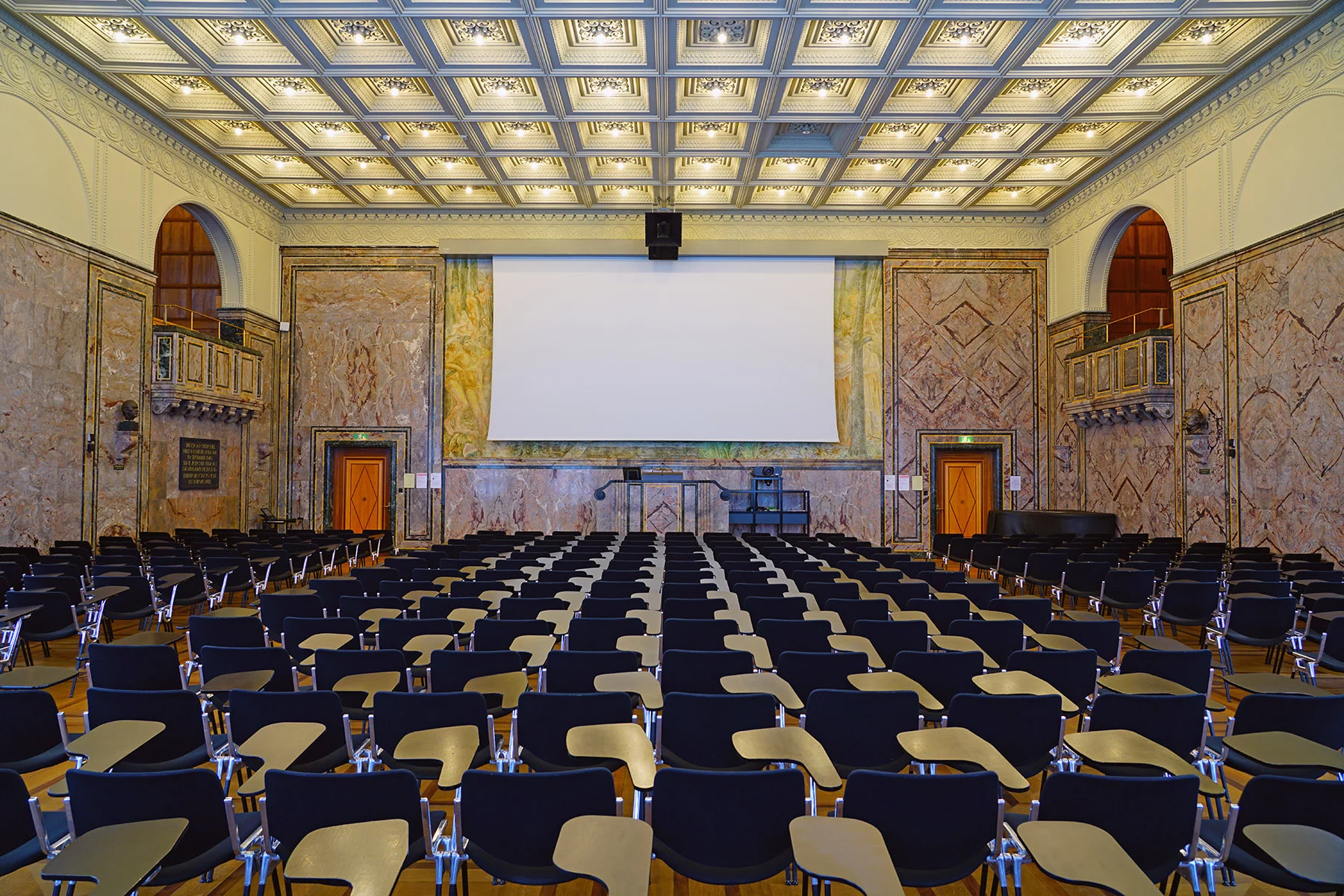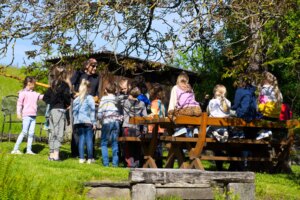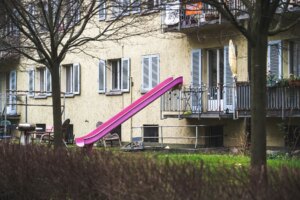Parents considering sending their child to a secondary school in Switzerland will quickly find that they have plenty of options. This includes state schools; which offer great cultural immersion but can present a language barrier, as well as international schools; which provide a world-class education but often charge expensive fees. When looking for a secondary school in Switzerland, parents might also want to consider their child’s higher education goals and future job prospects which may be influenced by the type of school they choose to attend.
So, to help you make the right decision, this guide provides the following information about secondary schools in Switzerland:
International School Zurich North
If you’re looking for a global education for your child, try International School Zurich North. This international school in Wallisellen offers the IB Primary Years, IGCSE, and A-Level programs to children from 3 to 18 years. For a leading international education in Zurich, consider the International School Zurich North.
The secondary education system in Switzerland
Choosing a secondary school in Switzerland can be quite complicated given the many educational options at this level. For instance, secondary education is divided between lower (Sekundarschule) and upper (Gymnasium) schools. The lower level is from ages 11 to 15 and the upper level is from 16 to 18. Furthermore, students can choose to attend state, private, or international schools. There may also be regional differences in what schools are called, which could cause further confusion if you are unfamiliar with the system.

In Switzerland, lower secondary school is compulsory, and upper secondary and vocational schools are optional. In the 2019/2020 school year, there were 262,160 students enrolled in mandatory lower secondary schools and 361,450 students in upper secondary education.
Although these many options may be overwhelming, parents can rest assured that whichever school they choose, Switzerland boasts one of the best education systems in the world.
State/public secondary schools in Switzerland
Notably, all public secondary schools in Switzerland are free and students don’t have to pay tuition fees to attend them. That said, they will need to have health insurance to enroll, and there may be some costs associated with particular Gymnasiums or apprenticeships.
Provisions for Special Needs education (SEN) varies from canton to canton, with options that include integrative SEN schooling, special classes, and even special schools. You can find more information about SEN in Switzerland in our guide to the education system in Switzerland, but your best bet is contacting your canton’s education department directly.
The curriculum in state secondary schools in Switzerland
The State Secretariat for Education, Research, and Innovation (SERI) is the federal body that oversees education in Switzerland. However, each of the country’s 26 cantons has primary responsibility for its education. As such, each canton has its own education department, school calendar, education structure, methods of teaching, and curriculums. Similar to state primary schools in Switzerland, the secondary school year runs from September to June or July with five different holiday breaks and several public holidays. But again, there may be slight regional variations.
Lower secondary school (Sekundarschule)
Students begin attending lower secondary school (Sekundarschule) around the age of 11 and this compulsory education lasts for three or four years. These schools teach a general curriculum that builds on the primary level. However, students can also choose to attend more specialized schools – such as a Gymnasium or Langgymnasium – which enable them to focus on particular subjects like mathematics or biology.
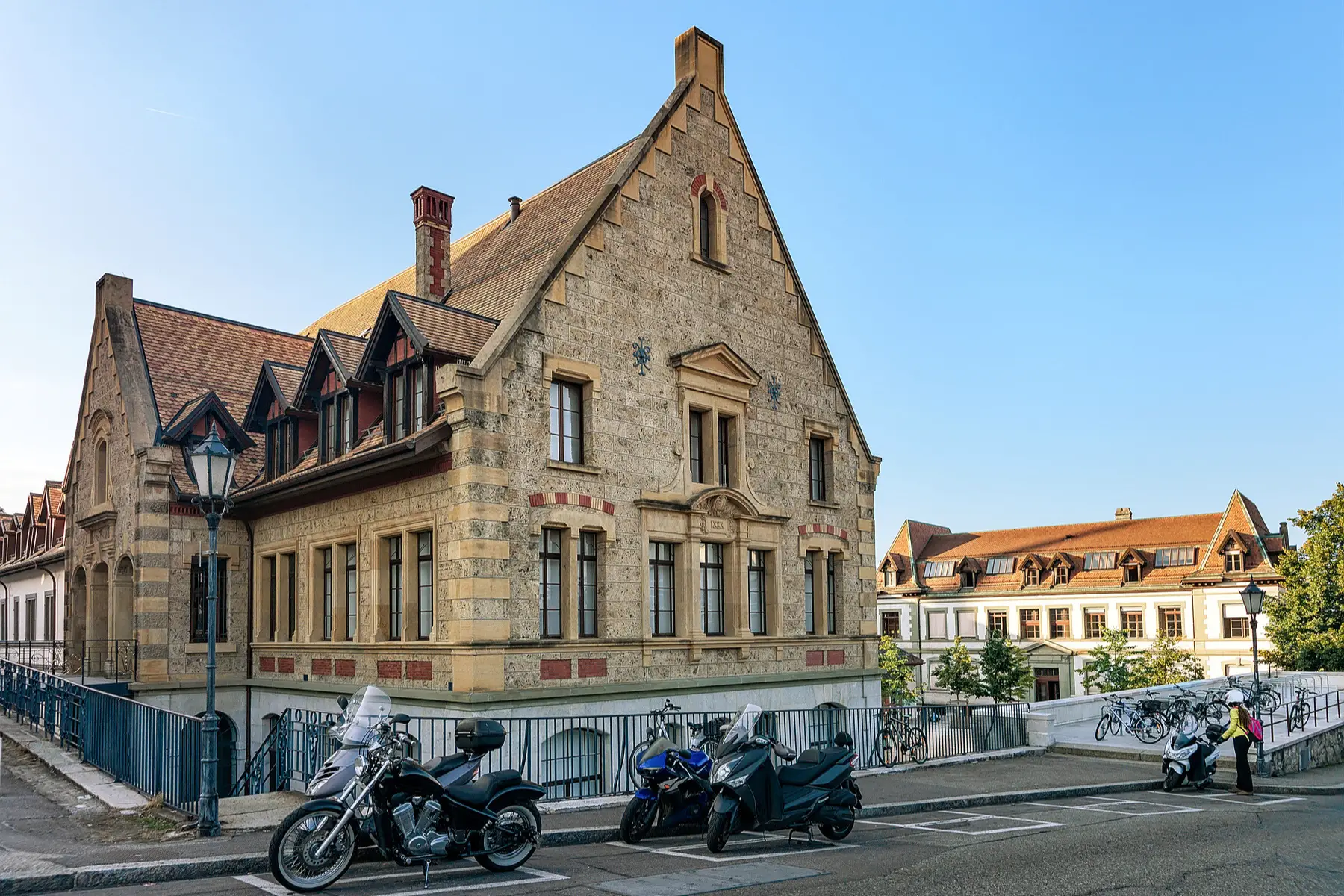
The general curriculum gives priority to languages, and most students take at least two. In addition, they study mathematics, natural sciences, geography, history, music, art, physical education, and home economics. As part of their education, they also have to take tests at the end of each year to determine whether they can continue to the next grade.
Upper secondary school (Gymnasium)
After completing the lower secondary level, students can choose whether to continue into upper secondary education and, if so, how. There are several types of schools at this level, and students have to choose one based on their preferred stream of education. However, to gain admission, they will need to obtain the appropriate grades and, in some cases, sit exams.
Many students choose to attend a particular type of Gymnasium, which is highly focused, to continue their studies. For example, there are mathematics and science schools (Mathematisches und Naturwissenschaftliches Gymnasium), language schools (Neusprachliches Gymnasium or Altsprachliches Gymnasium), business and economics schools (Wirtschaftsgymnasien), and art schools (Musisches Gymnasium).
Typically, students spend either four and a half or six and a half years studying at these schools. Notably, the six and a half years include vocational training. Nevertheless, in order to graduate, they must all sit a final exam, which is called the Swiss Matura.
Fortunately, Swiss schools do offer learning support to international students and students with special educational needs (SEN), and you can read more about that in our guide to the education system in Switzerland.
The pros and cons of state schools in Switzerland
Public schools in Switzerland are free to attend and offer a high level of education. However, at the secondary level, international students may find it harder to adjust to a new environment where they must attend lessons in a new language (i.e., the cantonal language – French, German, or Italian).
As such, state schools may be tough on expat children, even if they offer language support. On the other hand, they provide an excellent opportunity for linguistically-minded pupils to learn multiple languages.
One big disadvantage of state schools is that they might not offer as many activities and opportunities as private schools or have facilities and resources that match their level. Furthermore, although American universities recognize the Swiss Matura as an entry requirement, this might not be the case for all international universities.
Applying to secondary state schools in Switzerland
A student’s final primary school exams will determine which state secondary schools they can attend. However, this only applies to the lower secondary level. At the upper secondary level, Gymnasiums set three-part entrance exams that students must pass in order to gain admission. Students have to register for the exam by 10 February and submit a duplicate report card and proof of age. Some Gymnasiums also require additional documents or interviews.
Although the admissions process is relatively straightforward, it is competitive. As a result, many Gymnasiums in Switzerland are oversubscribed, which means that students have to be reallocated to other schools.
Private secondary schools in Switzerland
Private schools in Switzerland are called Privateschule or écoles privées, depending on the canton you live in. However, these are not as popular as state schools and cater primarily to international children. In fact, only about 5% of Swiss children attend private schools.

There are different types of private schools in Switzerland that offer varied curriculums and facilities. Notably, their fees can be substantial. In fact, the country is home to the world’s most expensive private boarding school – Le Rosey – which costs around CHF 106,000 a year to attend.
Private schools usually have smaller class sizes and better facilities than state schools, which is part of their appeal to international parents. They might also offer a multicultural environment which has its advantages. Curriculums differ across these schools; for example, they could offer:
- A Swiss-style education (the Matura)
- The internationally recognized International Baccalaureate (IB)
- A country-specific curriculum (e.g., US, British, Japanese, or Spanish)
Private schools in Switzerland might also take an alternative approach to education and follow religious, Montessori, or Steiner-Waldorf philosophies. Below is an overview of these types of schools.
Religious schools
There are several religious schools in Switzerland, although most of these are specifically Catholic. These schools offer a rigorous spiritual education alongside standard subjects. They are often split into primary or secondary schools. Students finishing their secondary education at these schools usually receive the Swiss Matura (i.e., the Swiss high school diploma).
Montessori schools
Similar to many other countries, private Montessori schools are popular in Switzerland, especially at the primary level. However, only a few schools, such as Ecole Montessori Vevey and Montessori-Schule Luzern, include lower secondary education (Sekundarschule). Montessori schools offer an individual, creative education that allows students to develop a sense of independence and curiosity about the world.
Steiner-Waldorf schools
Although they seem similar to Montessori schools, Steiner-Waldorf schools in Switzerland offer a more holistic approach to education. The curriculum encourages intellectual and artistic activities alongside conventional subjects like mathematics, sciences, history, and languages. Students are encouraged to foster critical thinking skills through questioning, discussion, and criticism.
International schools in Switzerland
Many expats choose to send their children to international schools in Switzerland, as they offer a similar style of education to that of their home countries. Whether you prefer the British, American, or even Japanese system, these schools cover the full range of languages and curriculums. Of course, you will find more French and German international schools than anything else, given the proximity of these countries to Switzerland.
International schools in Switzerland usually offer internationally-recognized qualifications. For example, International School Zurich North offers IGCSE and A-levels, as do many British schools. Meanwhile, French schools issue a French baccalauréat, and American schools have the SATs and American High School Diploma. Of course, the International Baccalaureate (IB) was developed in Switzerland, so many schools offer this, too.

Depending on the school, lessons might be in English, German, French, or another language. Most international schools offer bilingual programs, and some even have trilingual ones. For example, at the Japanese School in Zurich, lessons are taught in Japanese alongside German and English lessons. As such, international schools are a great choice if languages are of particular importance to your child. Notably, in bilingual schools, lessons are taught in two different languages and in equal amounts; for instance, German and English, German and French, or Italian and German.
International schools also vary in size in Switzerland, ranging from a few hundred pupils on one site to more than 4,000 spread over several campuses. Some also accept pupils from nursery level up to university entrance. These are typically day schools – which teach full days, including lunch – and boarding schools.
Applying to international schools in Switzerland
You will need to provide certain documents when applying to an international school in Switzerland. For example, you will have to show your child’s previous school records and residence permit. You will also need to prove that you have health and accident insurance for your child and pay a registration fee.
The cost of international schools in Switzerland
Because international schools are private, they don’t receive government support. This means that they charge tuition fees and these are typically substantial. For example, tuition fees for a high-school student at Zurich International School (ZIS) are approximately CHF 36,200 a year.

Moreover, fees can differ greatly depending on whether you choose day or boarding school. For example, day classes can range from CHF 9,000 to CHF 30,000 a year, while boarding schools can charge between CHF 70,000 and CHF 90,000 a year. In addition to tuition fees, you will also have to pay for a range of other things, which could include registration fees (up to CHF 1,000), meals, field trips, books and materials, and activities. Again, the costs for these differ greatly depending on the school.
Fortunately, many companies in Switzerland subsidize the schooling of their employees’ children when they recruit international candidates. This in turn may impact the decision about which school you send your child to.
The pros and cons of international schools in Switzerland
One of the main advantages of international schools in Switzerland is that students won’t face a language barrier. Furthermore, if you don’t plan to live in Switzerland long-term, your child can easily switch to a school in another country. An international school might also be the best choice for older children who may be halfway through a particular education system in their home country or might have been at an international school in another country. In these cases, they can simply continue with the same curriculum in Switzerland.
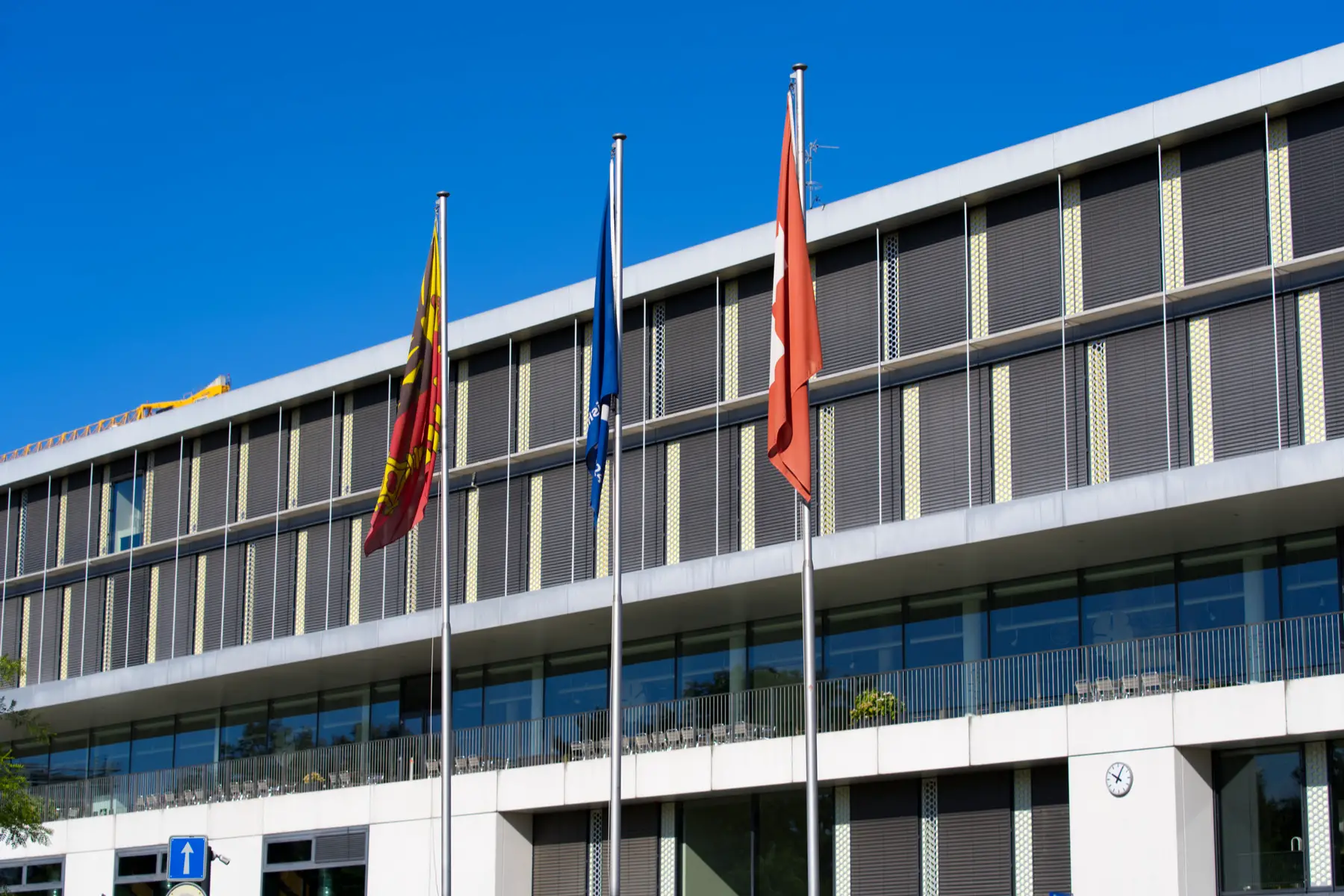
Moreover, the environment in these schools will most likely be multicultural, which can present a great opportunity for your child to foster a global perspective. Additionally, obtaining an international qualification also opens the possibilities for higher education abroad. On the other hand, your child won’t benefit from the same integration into Swiss culture that they would experience in a state school. As a result, this could leave them feeling like an outsider. There is also often a high turnover of pupils in international schools as parents move on to other jobs or postings abroad.
Another factor to consider is that international schools may have stringent admission requirements. This is because some schools have specific educational standards and have long waiting lists. Despite this, they are popular because facilities and extracurricular activities are of a higher standard than in state schools. Of course, this is offset by higher school fees and additional costs such as transport, supervision, and uniforms. However, unlike in state schools, international school students tend to stay for the full day, including lunch, which can be beneficial for working parents.
Graduating in Switzerland
In Switzerland, state secondary school students usually finish their education by taking a finishing exam called the Matura. However, if they enroll in a specific type of Gymnasium – such as a maths and science school – they will graduate with an Eidgenössische Matura, the federal graduation diploma. Therefore, depending on which type of school you graduate from, you may obtain either of these two Maturas.
Students graduating from private or international secondary schools, on the other hand, will receive different qualifications. This is because international schools in Switzerland usually offer international qualifications from their home curriculums, such as A-Levels from the UK, the French baccalauréat, or the American high school diploma. The International Baccalaureate (IB) is another coveted qualification.
The International Baccalaureate (IB) in Switzerland
The IB program began in Geneva over 50 years ago. As such, many students in Switzerland – especially expats – graduate high school with an IB Diploma. Many schools across the country offer the IB program, including International School Basel, Inter-Community School Zurich, and École Internationale de Genèva (Ecolint).
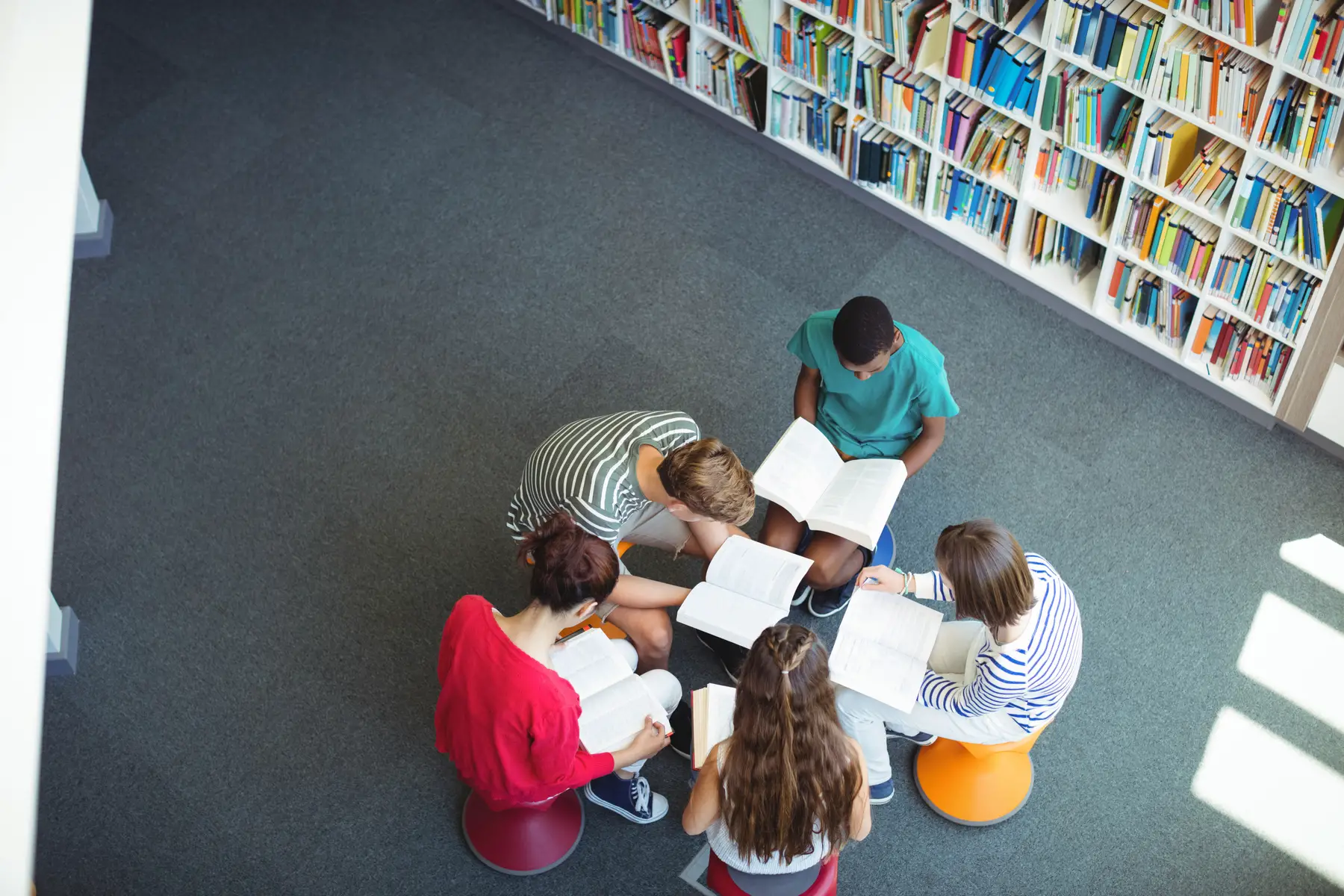
Because students must take at least one language, one humanities subject, mathematics, science, and a range of elective subjects, the IB program offers a well-rounded education. Typically, students will take six subjects including three at the standard level and three at the higher level. In addition, they must complete 50 hours of CAS (community, action, and service hours), take a Theory of Knowledge (philosophy) course, and write a 4,000-word extended essay on a topic of their choice.
Notably, the IB is one of the most rigorous academic programs at the secondary level, recognized worldwide by top-tier universities.
Trade schools in Switzerland
At the age of 15, students can also choose to supplement their education with an apprenticeship or enroll in a full-time vocational college if they have a particular career they want to pursue. If they choose this option, they will either complete a two-year vocational education and training program (VET) and graduate with a Federal VET Certificate or take a three or four-year VET program with a Federal VET Diploma.
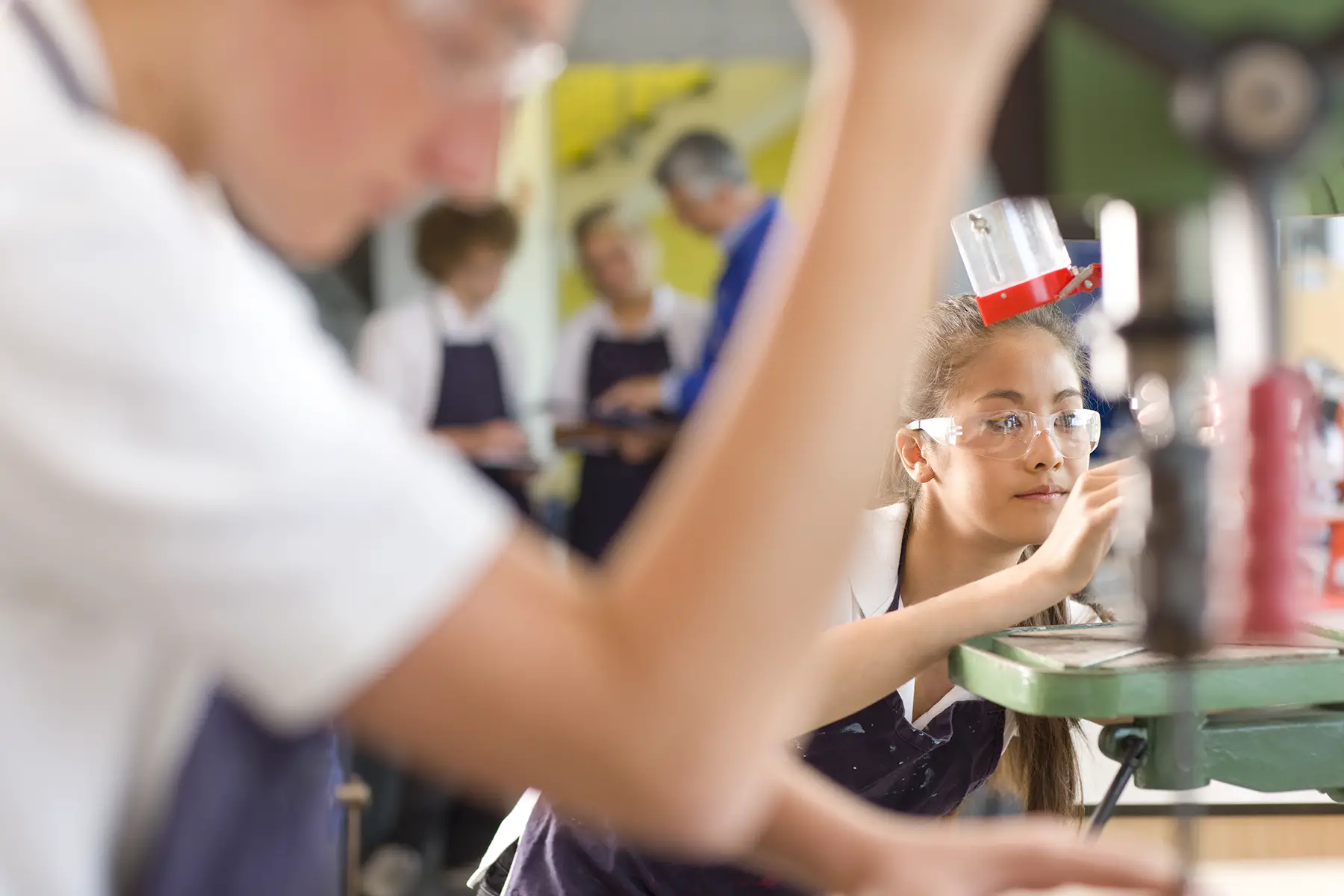
Notably, entry to VET programs can be highly competitive. Although each college or training company has its own admissions criteria, most require good performance in lower secondary school and application documents. Students might also have to pass entrance exams and attend interviews.
Useful resources
- Swiss Group of International Schools (SGIS) – provides a list of the 54 member international schools throughout Switzerland
- State Secretariat for Education, Research and Innovation (SERI) – the federal body overseeing education in Switzerland
- Swiss Federation of Private Schools (SGIS) – provides information on the 240 private member schools throughout the country
- Eurydice – the European Commission page with information about Swiss education
- Swiss Conference of Cantonal Ministers of Education (EDK) – provides details of the different cantonal education departments in Switzerland
